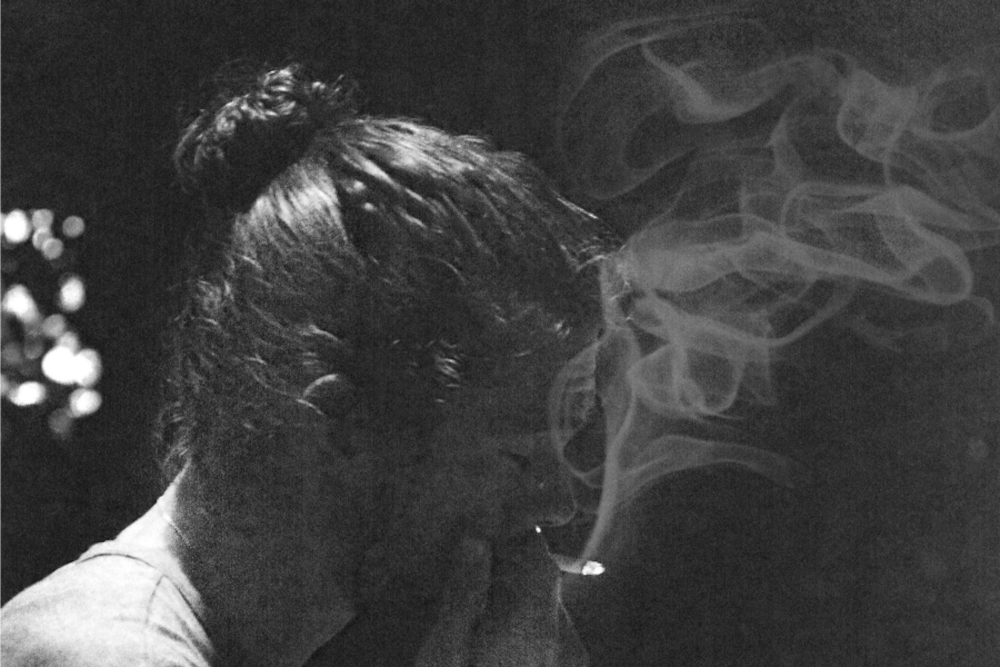Smoking not punishable by law
By Sophie Whorf, Senior Staff Writer
The stresses of college -- especially during the final weeks of the semester -- often prompt students to seek ways to alleviate the strain of term papers and all-nighters spent cramming for exams.
For some, that solution comes in the form of smoking cigarettes.
"Smoking is related to stress level. So people find that, even though nicotine is a stimulant -- that it relaxes them. So you're gonna see [smoking] more in high-stress times," said Rose Marie Ward, a professor in the Department of Kinesiology and Health who studies public health and substance abuse among college students.
Nick Froehlich, a first-year student, said that the pressure of a busy schedule drove him to start smoking.
"I never smoked before I came to college. I thought it was gross -- and it is," said Froehlich. "I never imagined myself to be pretty much addicted to cigarettes ... It turns out that [college] is really much more stressful than you anticipate."
Froehlich primarily smokes outside his residence hall during the evenings with a friend or two. He has never gotten in trouble for smoking on campus grounds or seen any smoking policy enforced, despite the fact that Miami's student handbook prohibits smoking.
According to Part 4, Chapter 10 of the handbook, all Miami campuses are a "Smoke-and Tobacco-Free Environment." This means that smoking is restricted on all university grounds at all times, including sidewalks, bridges and parking lots.
Although it is illegal to smoke inside Miami's buildings, the laws on surrounding university grounds are less clear.
The state of Ohio issued a smoking ban that was approved in Nov. 2006 and restricts smoking in public areas, including Miami University's campus.
Before the law was enacted, smoking on campus was allowed. As of now, smoking on university grounds is not technically punishable by law, but instead constitutes a violation of the "No Smoking" notices posted around campus.
Miami University Police Department (MUPD) Capt. Ben Spilman, who has been on the force for 19 years, says MUPD has never taken disciplinary action against a student smoking.
"There's not a Miami ticket to write for smoking. It's really more or less a community standard ... intended to be enforced by the community," said Spilman. "Certainly, it's an expectation about how people conduct themselves on our property."
Most MUPD officers carry small cards that offer resources for smoking cessation, and will occasionally hand them to students or faculty they witness smoking.
Spilman said the reality of how MUPD handles smokers runs contrary to what many students think its stance on smoking is.
"There's a pretty common misconception that we're out patrolling for smokers, but we're like any other member of the community," said Spilman. "We have the same responsibility that everybody else does, and being in a position of authority, we do take that seriously. Our role is to remind people of the expectations."
If students are upset by a repeat smoking offender on Miami's campus, the issue can be directed to the Office of Ethics and Student Conflict Resolution (OESCR), which deals with student disciplinary action.
Susan Vaughn, director of OESCR, says that complaints come through EthicsPoint, a university-wide anonymous reporting system, and are reviewed by the university attorney and OESCR staff.
Last year, current Miami students were asked to participate in a Healthy Minds survey, conducted by the University of Michigan School of Public Health, that measures cigarette use.
Of a sample size of 4,000 students -- both undergraduate and graduate -- 69 percent of students reported never using cigarettes. Nine percent reported usage in the last 12 months, but not the last 30 days, and 12 percent reported use in the past 30 days. By contrast, in the national survey, 14 percent reported having smoked in the past 30 days.
However, Ward said that these numbers may be distorted by the fact that most smoking occurs Uptown or off-campus.
Spilman says that generally speaking, smoking rates have declined at Miami.
"There is a substantial difference from when I was an undergraduate student to now," Spilman said. "It's not at all like it was in the past. I think we've seen a gradual decline in smoking amongst young people."
Ward agreed that smoking is not as prevalent as it used to be.
"I think we've changed as a culture," Ward said. "Over time, we've kind of phased out smoking in our environment."

